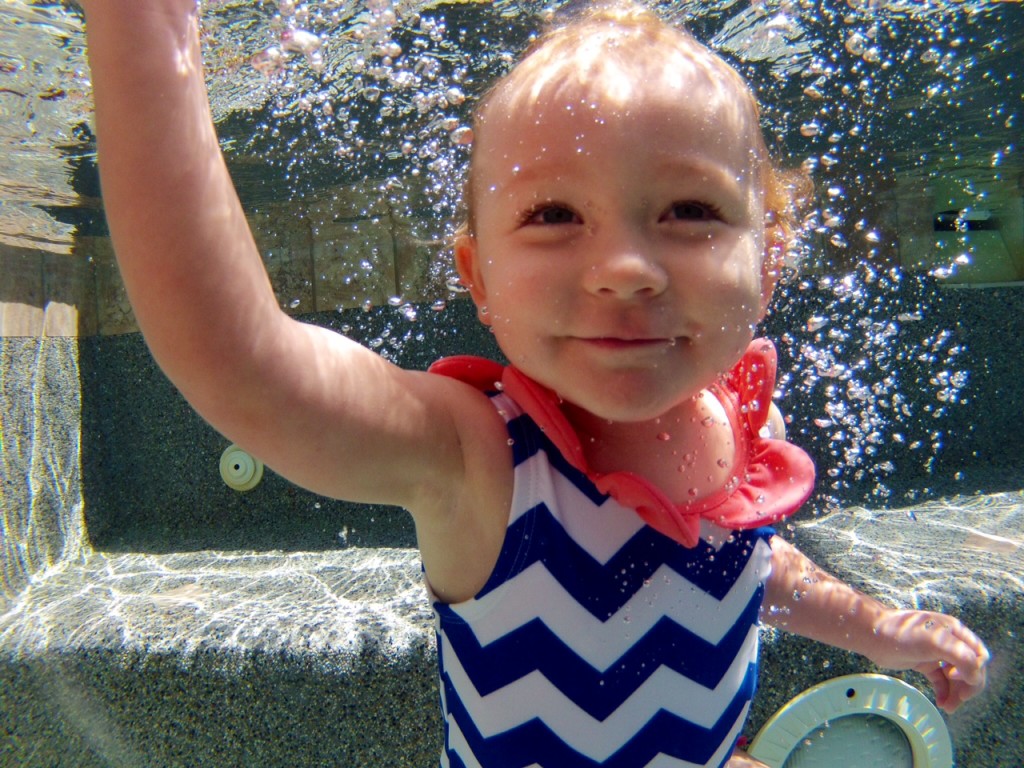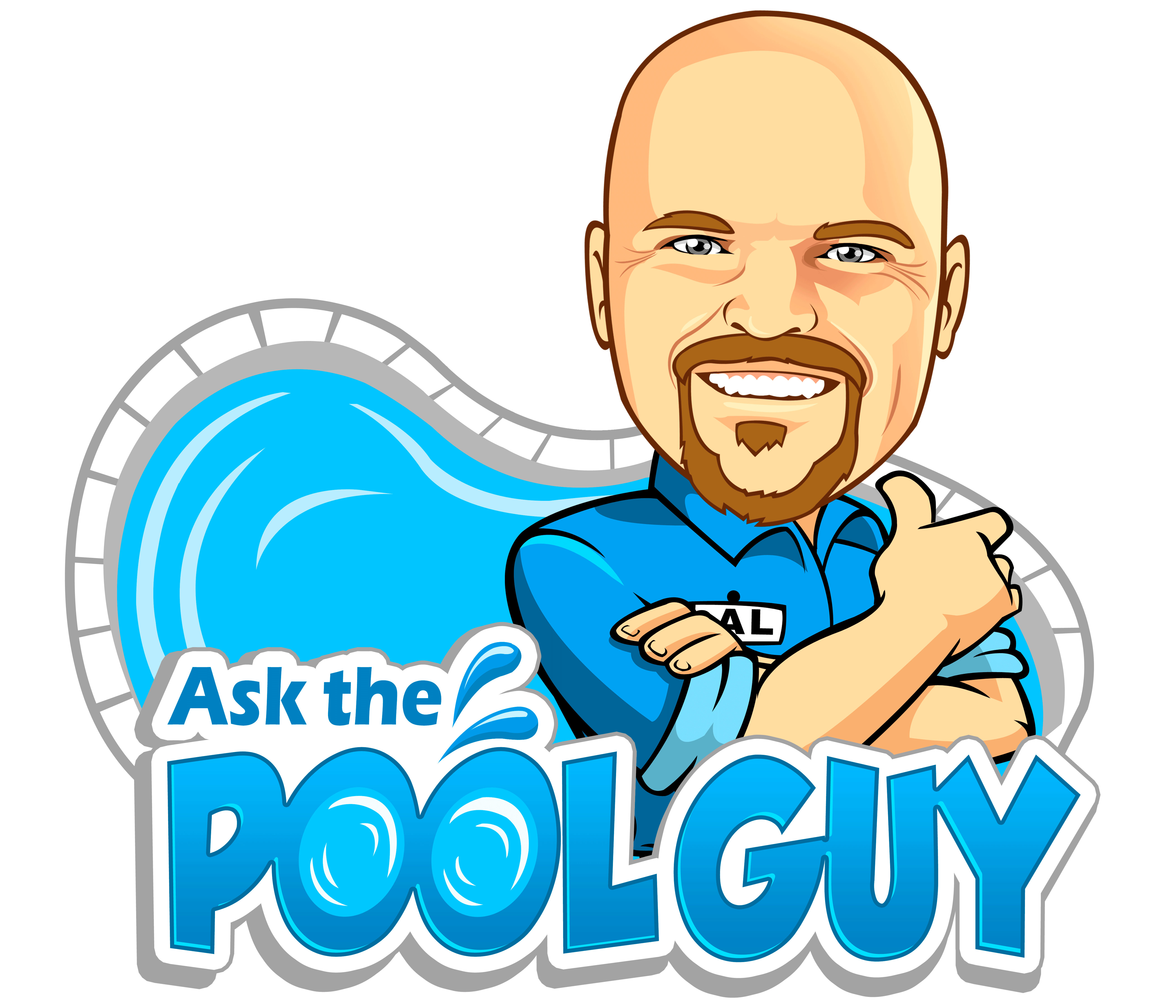Guest post by Matt Ribar
“I don’t use chlorine in my pool, I use salt.”
As pool professionals, we hear this from consumers very often. Either because that’s “what my neighbor said”, or that’s “what I read on the internet” or “the ocean is salt and the beach is beautiful!” Ok, that last one isn’t something we normally hear, but I have spoken to salt pool owners that have that idea.
The fact is, salt in your pool is used to create chlorine. Instead of having to purchase, transport, store, and dose your pool with chlorine, you have a unit that creates chlorine from salt water. That’s the great thing about a salt pool… It’s much easier and more convenient! But, you’re still using chlorine to sanitize and oxidize the organic contaminants in the water. As such, when there is a problem in the pool it is alright to use supplemental chlorine to help the situation along, especially if you get algae for one reason or another.
The proper name for a unit that creates chlorine from salt is Electrolytic Chlorine Generator or ECG. It is made up of a cell containing mainly titanium plates and a power center that provides a small electrical charge to the cell that breaks up salt (sodium chloride) into hypochlorous acid (chlorine) and sodium hydroxide (by product of chlorine generation). Once the generated chlorine sanitizes the contaminants, it reverts back to salt and the process starts over again. Many ECG’s have a button for “boosting” or “shocking”. This makes the unit generate chlorine at full capacity for a set period of time (24 hours +\-) which typically creates, in that time period, the same amount of chlorine as a normal dose of chlorine shock.
“My pool uses salt, I don’t have to do anything else.”
This is also a common misconception. ECG’s only create chlorine, that’s all. They take the place of chlorine tablets and chlorinated shock products. Pools need more help then that. You also need to balance the pH, total alkalinity, calcium hardness, and cyanuric acid of pools. In a chlorine generated pool, keeping the pH balanced can be more difficult than in a typical chlorine pool for one main reason. Earlier in this article we referenced hypochlorous acid and sodium hydroxide. Both are manufactured via chlorine generation. The pH of hypochlorous acid molecules is very low, the pH of sodium hydroxide is very high. If you think about that, the low and high pH should counter balance each other but… For every one hypochlorous acid generated, there are two sodium hydroxides generated. Since sodium hydroxide is so high in pH, a salt pool typically runs a pH that is in the 7.8-8.2 range. That may not seem like a big deal since a balanced pH is considered 7.2-7.6 but at 7.8, chlorine effectiveness goes down about 30%! At 8.2, chlorine effectiveness goes down even more, which is why there always seems to be a need to add muriatic acid or granular pH down. Also, at a higher pH, carbonates (scale causing compounds) that are normally dissolved in the water become more susceptible to falling out of solution (becoming “un-dissolved”), which can cause scale build up on the walls and steps of your pool and inside of your ECG cell which further diminishes it’s effectiveness and does not look good on your water line. This is why a “stain and scale” product maintenance program is recommended. If you have ever felt hard deposits on your pool floor with your feet, you know what I am referencing. A high pH also promotes pools that are clear, but not crystal clear. Typically, well balanced and filtered pools look very clear during the day, from the pool deck, but at night, with the light on, you can see particulate pass in front of the light that contributes to the water having a dull, but clear, appearance especially when you are under the water looking through it to the other side of the pool. High pH exacerbates this appearance by contributing to the particulates due to carbonates coming out of solution.
“Salt pools are easy”
Having a salt pool is a lot easier and less time consuming, not to mention the convenience factor, than typical chlorine pools. But can they be even easier? YES!
That is why APi came out with the new product, PEPPER! Pepper is a multi-tasking blend of the additional chemicals salt pools need to be their most efficient and effective. Pepper is formulated to take the negative connotations out of salt pool ownership. Pepper is added to the pool only every other week. It’s formula negates the pH drift associated with the second hydroxide molecule, thus reducing the need for buying, transporting, storing, using (and spilling) muriatic acid. Pepper also increases the life of the ECG cell by optimizing the chlorine performance, in fact, salt pool owners lower the generator settings by at least 20% with the continued use of Pepper, which cuts down on energy consumption and requires the cell to run less every day. Pepper also has phosphate (algae food) and turbidity (cloudiness) managers in it, so the particulate, referenced earlier, is captured via the filter thus creating a crystal clear pool, even at night. APi’s Pepper tackles one other issue… scale. Earlier we mentioned scale formation in the pool and especially in the ECG cell. Pepper has multiple ways to combat scale formation, not only because it helps keep the pH in check but we also have a phosphate-free scale inhibitor in the formula. This means that the one to three times a year (depending on where you live) that you have to soak your cell in a cell cleaner or acid is reduced significantly.
Conclusion
Although having a salt pool does make pool chemistry and ownership easier, there are still some things to watch out for: pH drift, scale formation, high phosphate levels, shortened cell life, ineffective chlorine, and dull water. The twice-a-month application of Pepper makes your salt pool chemical care even easier by helping control all of these issues. Start using Pepper today, experience the difference, take off your chemistry lab coat and enjoy your pool.
Matt Ribar has been in the pool industry since 1993, working solely in the chemical side of the industry since 2004. He has been a pool store owner, service manager, and a Chemical Specialist on the distribution side of the pool industry for the U.S. Midwest and Canada. For the past three years he has worked for one of our chemical vendors, APi, the manufacturers of products like Pepper, Revive, and EZ Pool.
